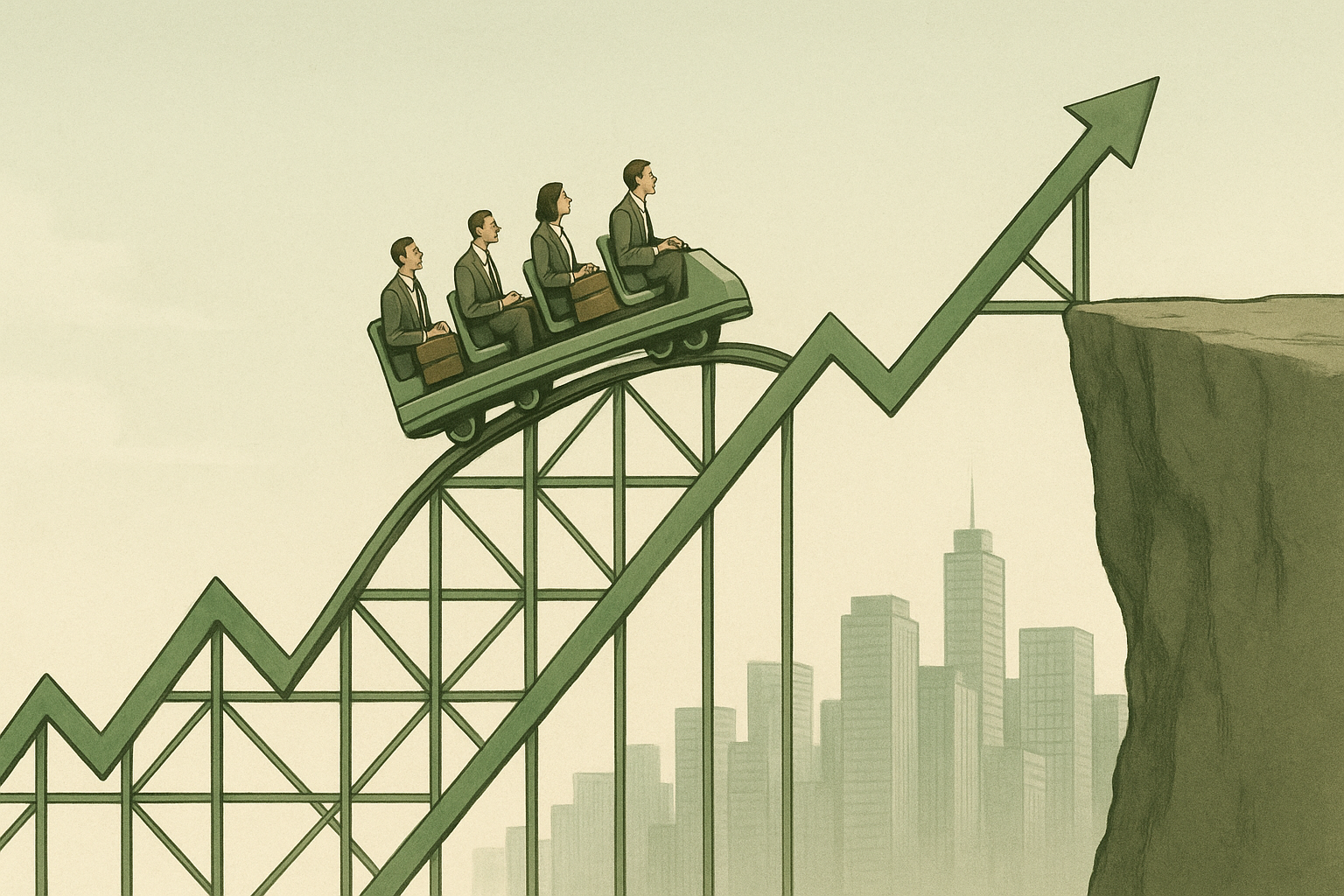Wall Street has a funny way of rewriting history. When markets eventually tumble — and they always do, sooner or later — watch how quickly the financial talking heads emerge with their "I-told-you-so" proclamations. It's predictable theater.
Just months back, "recession" was the buzzword du jour in financial circles. Now? It's as if we've collectively decided that economic downturns are so 2023. The market keeps smashing records with such regularity that new all-time highs barely merit a headline anymore.
What's particularly troubling (and I've been watching markets long enough to recognize the warning signs) is how risk management has devolved into meme-worthy simplicity. When seasoned hedge fund managers — supposedly the sophisticated adults in the room — describe their strategy as simply "buy the dip," we're not talking about investment philosophy anymore. We're talking about blind faith masquerading as strategy.
The psychological patterns never really change, do they?
First comes euphoria. Then complacency. Then vulnerability. We're currently witnessing the confidence feedback loop in real-time: markets climb, investors grow bolder, more money flows in, markets climb higher, confidence morphs into hubris... rinse and repeat.
History suggests this party must eventually end. The question is when — and that's the eternal problem. Markets can stay irrational longer than most pessimists can stay solvent, a painful lesson that's bloodied many a short-seller over the past year.
Look, if a correction never materializes... well, that's when things get truly interesting. Imagine the level of invincibility that would permeate market psychology! We'd enter uncharted territory where traditional valuation metrics become quaint historical curiosities, like typewriters or phone booths.
The market's narrative machine is nothing if not adaptable. During bull runs, creative justifications emerge for sky-high valuations. During downturns, those same voices that preached perpetual growth suddenly discover they had been "cautioning about excesses all along." (Funny how that works.)
So where does this leave thoughtful investors? Caught between momentum and fragility. Between chasing returns and preparing for inevitable decline. Between FOMO and prudence.
Perhaps the wisest approach is simply acknowledging our own ignorance. None of us — not Wall Street veterans, not Fed officials, and certainly not financial columnists with deadlines to meet — know with absolute certainty what happens next.
What we do know is that extreme confidence rarely ends well. Sometimes the market doesn't even need a specific trigger for correction; the simple realization that everyone's crowded onto the same side of the boat is enough to tip it over.
And when that correction finally arrives? Listen carefully to the chorus claiming they saw it coming all along. Their sudden clairvoyance might be the most reliable indicator that the bottom is in and we're ready to start the whole cycle over again.
I've seen it before. We'll see it again.
